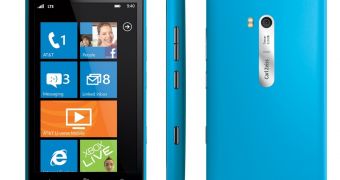Nokia is pushing its Lumia devices to the front as often as it can, and it seems that it has every right to do so. The phones are great options for users of all kinds, the company notes, adding that businesses can also take advantage of their features when necessary.
In fact, the company is suggesting that Lumia devices have been business-ready since day one, and that customers in this sector need to be aware of that.
David Mason, head of product marketing for Nokia’s business customers, tells Nokia Conversations that there are three requirements that a device needs to meet to be fit for the business sector.
“First, there are individuals who are doing business with their phone,” David Mason commented.
“Perhaps they’re able to expense the cost of their device with their employer, or choose it from a list of approved models. Here, there’s a lot in common with what everyone else wants from their phone: good looks, reliability, easy-to-use and plenty of apps.”
He also added that “the thing that we’d stress most for these types of customers is that it’s easy and fast to set up and use your work accounts: you won’t need IT to get involved as you do with some rival smartphone brands.”
According to Gerard Bruen, the head of B2B sales, another important factor when it comes to business use is the ability to get things done fast. Windows Phones can do that, he adds.
Businesses will also take advantage of the support for Microsoft Exchange Server and Office that Windows Phone devices come with. Moreover, they can benefit from the Office 365 service, which includes apps accessible from a Lumia device as well.
Both small and large businesses have a lot to gain using Windows Phone devices, Gerard Bruen explains.
“The requirements can vary enormously. But one common factor is that they are very mindful of the cost per user and any overheads that come in by agreeing to support a particular system,” he says.
In addition to easy management and a wide range of available applications specifically crafted for business use, Nokia’s Lumia devices come with better security, further proving great options for enterprise users.
“The security of the operating system is also an important consideration. Luckily, apps on Windows Phone are ‘sandboxed’ in memory and so we haven’t had the malware problems that have plagued other systems,” Bruen continues.
The best part of the deal is that Lumia devices can offer support for existing management software implementations so that companies could continue using their infrastructure when delivering Windows Phone devices to their employees.
“Businesses don’t want to install a different piece of management software for every different phone or laptop that comes into their organization,” David Mason explains.
“So we’ve been working with trusted third-party brands to integrate Lumia into existing Enterprise systems. There are solutions from Symantec, Good Technology and Microsoft itself. Others are in late stages of development from the likes of SAP, IBM and Airwatch.”

 14 DAY TRIAL //
14 DAY TRIAL //